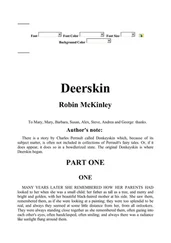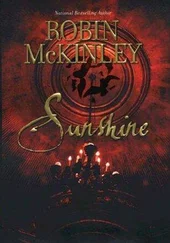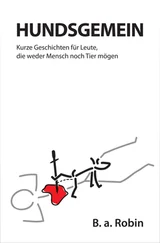Robin McKinley - Water
Здесь есть возможность читать онлайн «Robin McKinley - Water» весь текст электронной книги совершенно бесплатно (целиком полную версию без сокращений). В некоторых случаях можно слушать аудио, скачать через торрент в формате fb2 и присутствует краткое содержание. Год выпуска: 2002, ISBN: 2002, Издательство: Firebird, Жанр: Старинная литература, на английском языке. Описание произведения, (предисловие) а так же отзывы посетителей доступны на портале библиотеки ЛибКат.
- Название:Water
- Автор:
- Издательство:Firebird
- Жанр:
- Год:2002
- ISBN:9780142402443
- Рейтинг книги:4 / 5. Голосов: 1
-
Избранное:Добавить в избранное
- Отзывы:
-
Ваша оценка:
- 80
- 1
- 2
- 3
- 4
- 5
Water: краткое содержание, описание и аннотация
Предлагаем к чтению аннотацию, описание, краткое содержание или предисловие (зависит от того, что написал сам автор книги «Water»). Если вы не нашли необходимую информацию о книге — напишите в комментариях, мы постараемся отыскать её.
Water — читать онлайн бесплатно полную книгу (весь текст) целиком
Ниже представлен текст книги, разбитый по страницам. Система сохранения места последней прочитанной страницы, позволяет с удобством читать онлайн бесплатно книгу «Water», без необходимости каждый раз заново искать на чём Вы остановились. Поставьте закладку, и сможете в любой момент перейти на страницу, на которой закончили чтение.
Интервал:
Закладка:
She had had her first desert dreams when she was quite young, and still had time to read storybooks and imagine herself in them; but deserts were only one of the things she dreamed about in those days. She dreamed about knights in armour and glorious quests, and sometimes in these dreams she was a knight and sometimes she was a lovely lady who watched a particular knight and hoped that, when he won the tournament, it would be she to whom he came, and stooped on bended knee, and . . . and sometimes she dreamed that she was a lady who tied her hair up and pulled a helmet down over it and over her face, and won the tournament herself, and everyone watching said, Who is that strange knight? For I have never seen his like. After her mother fell ill and she no longer had time to read, she still dreamed, but the knights and quests and tournaments dropped out of her dreams, and only the deserts remained.
For years in these desert dreams she rode a slender, graceful horse with an arched neck, and it flew over the sand as if it had wings; but when she drew up on the crest of a dune and looked behind her, there would be the shallow half-circles of hoofprints following them, hummocking the wind-ridges and bending the coarse blades of the sand-grass. Her horse would dance under her, splashing sand, and blow through red nostrils, asking to gallop on, but she would wait for the rest of her party, less wonderfully mounted, toiling behind her. Then she would turn again in the direction they were all going, and shade her eyes with one hand, talking soothingly to her restless horse through the reins held lightly in the other; and there would be the dark shadow of mountains before her, mountains she knew to call the Hills.
As the years passed, however, the dreams changed again. She left school at sixteen because her parents said they could spare her no longer, with her mother ill and Ruth and Jeff still so little and her father and Dane (who had left school two years before) working extra hours in the shop because the specialists her mother needed were expensive. When Mrs Halford and Mr Jonah came to visit them at home (repeated efforts to persuade her parents to come into the school for a meeting having failed), and begged them to reconsider, and said that she was sure of a scholarship, that her education would be no burden to them, her mother only wept and said in her trembling invalid voice that she was a good girl and they needed her at home, and her father only stared, until at last they went away, the tea and biscuits she had made in honour of so rare an event as visitors in the parlour untouched. Her father finally told her: “See them out to their car, Hetta, and then come direct back. Supper’s to be on time, mind.”
The three of them were quiet as they went down the stairs and through the hall that ran alongside the shop. The partition was made of cheap ply, for customers never saw it, which made the hall ugly and unfriendly, in spite of the old family photos Hetta had hung on the walls. The shop-door opened nearly on the kerb, for the shop had eaten up all of what had been the front garden. At the last minute Mrs Halford took Hetta’s hand and said, “If there’s anything I can do—this year, next year, any time. Ring me.”
Hetta nodded, said good-bye politely, and then turned round to go back to the house and get supper and see what Ruth and Jeff were doing. Her father had already rejoined Dane in the shop; her mother had gone to bed, taking the plate of biscuits with her.
Ruth had been told by their father to stay out of the way, it was none of her concern, but she was waiting for Hetta in the kitchen. “What happened?” she said.
“Nothing,” said Hetta. “Have you done your homework?”
“Yes,” said Ruth. “All but the reading. D’you want to listen while you cook?”
“Yes,” said Hetta. “That would be nice.”
That night Hetta dreamed of a sandstorm. She was alone in darkness, the wind roaring all round her, the sand up to her ankles, her knees, her waist, filling her eyes, her nose, her mouth. Friendly sand. She snuggled down into it as if it were a blanket; as it filled her ears she could no longer hear the wind, nor anything else. When the alarm went off at dawn, she felt as stiff as if she had been buried in sand all night, and her eyes were so sticky, she had to wash her face before she could open them properly.
It had been a relief to quit school, because she was tired all the time. There was more than she could get done even after there was no schoolwork to distract her; but without the schoolwork she found that her mind went to sleep while her body went on with her chores, and for a while that seemed easier. Sometimes months passed without her ever thinking about what she was doing, or not doing, or about Mrs Halford, or about how she might have used that scholarship if she had got it, if her parents had let her accept it, which they wouldn’t have. Months passed while her days were bound round with cooking and housekeeping and keeping the shop accounts, looking through cookery books for recipes when her mother thought that this or that might tempt her appetite, sweeping the passage from the shop twice a day because of the sawdust, teaching Ruth and Jeff to play checkers and fold paper airplanes. When she had first started keeping the accounts, she had done it in the evening, after supper was cleared away and there were no other demands till morning, and the kitchen was peaceful while everyone watched TV in the parlour. But she found she was often too bone weary to pay the necessary attention, so she had taught herself to do it in the edgy time between breakfast and lunch, when the phone was liable to ring, and her mother to be contemplating having one of her bad days, and her father to call her down to the shop to wait on a customer. One afternoon a week she took the car to the mall and shopped for everything they had to have. After the narrow confines of the house, the car park seemed liberating, the neon-edged sky vast.
The months mounted up, and turned into years.
One year the autumn gales were so severe that ruining the harvest and breaking fences for the stock to get through out in the countryside wasn’t enough, and they swept into the towns to trouble folk there. Trees and TV aerials came down, and some chimney-pots; there was so much rain that everyone’s cellars flooded. The wood stored in their cellar had to come up into the parlour, whereupon there was nowhere to sit except the kitchen. Everyone’s tempers grew short with crowding, and when the TV was brought in too, there was nowhere to put it except on counter space Hetta couldn’t spare. The only time there was armistice was during programmes interviewing farmers about how bad everything was. Her father watched these with relish and barked “Ha!” often.
That season in spite of the weather she spent more time than ever in the garden. The garden had still been tended by her great-grandfather when she was very small, but after he died, only her grandmother paid any attention to it. As her mother’s illness took hold and her father’s business took off, it grew derelict, for her grandmother had done the work Hetta did now, with a bad hip and hands nearly frozen with arthritis. Hetta began to clear and plant it about a year after she stopped school; gardening, she found, was interesting, and it got her out of the house. Her father grumbled about having to contain his heaps of wood chips and discarded bits too broken to be mended, but permitted it because she grew vegetables and fruit, which lowered the grocery bills, and she canned and froze what they didn’t eat in season. No one else even seemed to notice that the view from the rear of the house looked any different than the front—although Ruth liked bugs, and would sometimes come out to look at the undersides of leaves and scrape things into jars—and so long as Hetta wasn’t missing when someone wanted her, nothing was said about the hours she spent in the garden. Their house was the oldest on the street and had the largest garden. It had been a pretty house once, before the shop destroyed its front, but the shop at least made it look more in keeping with the rest of the row. There were proper walls around their garden, eight foot tall on three sides, and the house the fourth. It was her own little realm.
Читать дальшеИнтервал:
Закладка:
Похожие книги на «Water»
Представляем Вашему вниманию похожие книги на «Water» списком для выбора. Мы отобрали схожую по названию и смыслу литературу в надежде предоставить читателям больше вариантов отыскать новые, интересные, ещё непрочитанные произведения.
Обсуждение, отзывы о книге «Water» и просто собственные мнения читателей. Оставьте ваши комментарии, напишите, что Вы думаете о произведении, его смысле или главных героях. Укажите что конкретно понравилось, а что нет, и почему Вы так считаете.












